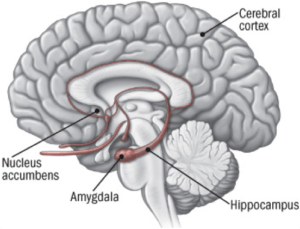What Makes You Credible? It’s Not What You (or They) Think
Credibility: the quality of being trusted and believed in. (Oxford Dictionary)
Think for a moment about where in your life you’d like more credibility.
Perhaps it’s with people in your company who aren’t on your team or in your department. Maybe you’d like more credibility with potential customers, or with a group or community that’s new to you. Or it’s possible you’d like more career credibility to get a promotion or earn more money.
I suppose you’ve given some thought as to how you can build your credibility in that area of your life. And that might include trying some of the things that most people do to increase their credibility, like:
- Studying/knowing a subject deeply (like your craft, your product, etc.)
- Pursuing an advanced degree or certification
- Working for companies that have built great reputations
- Racking up awards or credentials
But to what extent do those things really influence what others think about you and your credibility?
The process they follow isn’t quite as logical as you might assume.
According to the National Science Foundation, people have between 60,000-80,0000 thoughts per day. Of those thoughts, a very small percentage is spent determining whether the people around them are trustworthy. With so many thoughts coming through your brain, there’s not much time available to spend analyzing people’s knowledge, background, and credentials.
You probably know this from your own experience. After all, how often do you spend more than ten seconds seriously thinking about whether the person you’re interacting with is credible?
A study conducted by researchers from New York University, Dartmouth, and Harvard seems to back this up. They found that people make decisions in a matter of seconds, even before they’ve had any conscious, logical explanation for it.
Let’s take a look at why that’s the case.
Mental Shortcuts Determine Your Credibility
The human brain is designed to apply heuristics (mental shortcuts) to judge the credibility of another person as quickly and efficiently as possible. Nobel Prize winning economist Daniel Kahneman refers to this efficient decision-making as “System 1” or “fast” thinking. In his book Blink, Malcolm Gladwell calls it “thin-slicing.” An example is the split-second decisions people make when they’re speed dating or on Tinder.
Much of that fast thinking comes from the brain’s amygdala, its fear center. As the part of the brain that concerns itself with self-protection, the amygdala doesn’t slow down and examine things in a rational way. Its concerns are immediate: Is this person safe? Are they a threat to my survival?
When it comes to your credibility, if someone’s System 1 thinking determines that you represent a risk, confusion, pain, or a waste of energy, their amygdala will send fight, flight, or freeze messages into their nervous system. Those fight, flight, or freeze messages will judge you to be less trustworthy, and you’ll lose credibility.
The other mental shortcut people make when you’re interacting with them comes from their brain’s pleasure center, the nucleus accumbens. Like the amygdala, it doesn’t analyze your credibility using logic. Instead, it asks whether it will enjoy what you offer. If you seem pleasant to be around and/or offer something of enjoyment, their brain will release dopamine into their body, causing them to feel good. As a result, they’ll associate those positive feelings with you, which will increase your quality of being trusted and believed in.
The Answer Lies Within (The Other Person’s Brain)
I’m sorry to break it to you if you thought your credibility was based on something logical like how smart you are, the reputation of your organization, or how many impressive credentials you have on your LinkedIn profile. While those factors may contribute to the perception others have of you, your credibility is based on how you make people feel. That’s just how it is with the human brain.
But even with fast-thinking humans, there are things you can do to build your credibility. In my next post, I’ll discuss the four ways to make people immediately feel like you’re credible. In the meantime, are you considering how other people view your credibility? And are you doing what you can to maximize that credibility in seconds?











Comments are closed here.